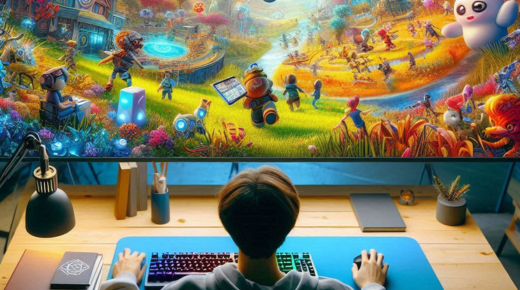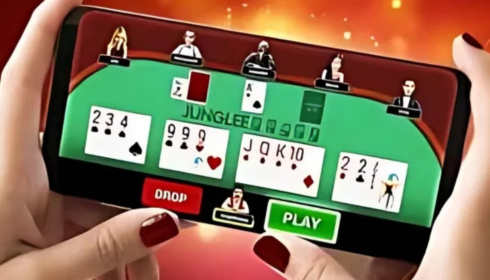- What is a pretending game (RPG)?
A RPG is a kind of game where players expect the jobs of characters in a made up setting. Players normally control at least one characters, pursue decisions that influence the story, and take part in journeys, battle, and character improvement.
- What are the various sorts of RPGs?
RPGs come in different structures, including:
Western RPGs (WRPGs): Spotlight on player decision and open-world investigation (e.g., The Senior Parchments V: Skyrim).
Japanese RPGs (JRPGs): Frequently straight with turn-based battle and elaborate storylines (e.g., Last Dream series).
Activity RPGs: Joins RPG components with quick moving battle (e.g., Dim Spirits).
MMORPGs: Greatly multiplayer online RPGs, where players connect in enormous, determined universes (e.g., Universe of Warcraft).
- What makes RPGs unique in relation to different types?
RPGs center around character advancement, decision driven narrating, and world-building. Players commonly make and control characters, modify their capacities and abilities, and pursue effective choices that shape the game’s story.
- How do RPG character details work?
In RPGs, characters frequently have details like strength, finesse, knowledge, and allure, which impact their capacities in battle, collaboration with NPCs (non-playable characters), and other ongoing interaction angles. Players can work on these details as they progress in the game.
- What is a “evening out framework” in RPGs?
An evening out framework permits characters to acquire experience focuses (XP) for finishing missions, overcoming foes, or different accomplishments. As a person steps up, they gain more grounded capacities, more wellbeing, and can open new abilities or gifts.
- What is the contrast between turn-based and continuous battle in RPGs?
Turn-based battle: Players alternate to perform activities (e.g., Last Dream).
Ongoing battle: Activities happen constantly, and players control the characters progressively (e.g., The Witcher 3). Some RPGs consolidate the two styles, taking into consideration strategic stops or methodology during battle.
- What is a “journey” in RPGs?
A journey is an errand or mission that a player’s personality embraces, generally including investigation, battle, or puzzle-settling. Missions can be fundamental story-driven or side errands that deal remunerates and grow the game world.
- What is “pretending” in a RPG?
Pretending includes submerging oneself in the person’s persona and pursuing choices that line up with the person’s attributes, ethics, and targets. It frequently implies contemplating how a person would respond in various circumstances as opposed to just expecting to “win.”
- What are “NPCs” (Non-Playable Characters) in RPGs?
NPCs are characters constrained by the game, not by players. They give missions, data, and associate with the player characters in different ways, frequently assisting with driving the story forward.
- How significant is story in RPGs?
Story is much of the time key to RPGs. Numerous RPGs highlight profound, vivid accounts with complex characters, legend, and fanning storylines. Player decisions can influence the plot and its result, making an exceptionally private encounter.
- What is “open world” in RPGs?
An open-world RPG highlights a tremendous, explorable climate where players can meander unreservedly, complete side journeys, and connect with the world without being confined to straight ways or missions. Models incorporate The Senior Parchments V: Skyrim and The Witcher 3.
- What are “works” in RPGs?
A form alludes to the manner in which a player redoes their personality’s details, abilities, and capacities to suit a specific playstyle. A few forms are centered around offense (e.g., high harm yield), while others might focus on protection or sorcery.
- How do multiplayer RPGs work?
Multiplayer RPGs (like MMORPGs) permit numerous players to cooperate in a similar game world. Players can collaborate to finish journeys, fight adversaries, and exchange things. These games frequently highlight tireless universes that advance over the long haul in light of player activities.
- What are “arrangement” frameworks in RPGs?
An arrangement framework tracks a person’s moral and moral position, regularly going from “great” to “evil” and “legal” to “turbulent.” Player choices can move their arrangement, which influences how NPCs see and communicate with them.
- What is “crushing” in RPGs?
Crushing alludes to performing monotonous errands, for example, overcoming adversaries or social event assets, to acquire experience focuses, step up, or gain in-game cash and things. It’s a typical piece of numerous RPGs, particularly MMORPGs, to further develop characters or progress through the game.














